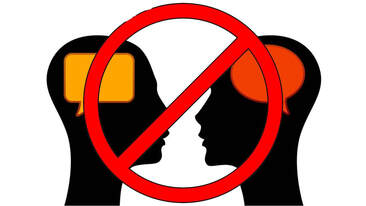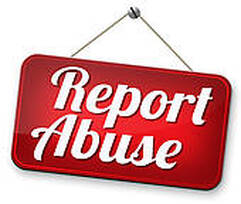 Internet trolls! They get everywhere these days. They’re mainly to be found on social media sites such as Facebook and Twitter, but they can turn up anywhere. You’ll find them in the reviews section of Amazon and other retail sites (the 1 star end of the scale, naturally). They also appear on Goodreads and similar sites. It wouldn’t surprise me if a couple turned up in the comments section of this blog because, let’s face it, they’re not going to like what I have to say about them. I’m not sure if trolls attack authors any more than they attack anyone else, but let’s face it, if you are trying to do something worthwhile, someone will always try to bring you down, which is pretty much the job description of a troll. Some of them may not even think of themselves as being trolls. They just think they're "telling it like it is" (or similar euphemisms to justify obnoxious behaviour) It's easy to say “block them and move on”, but the hurt has already been felt the moment the words are read. And that’s what the trolls know. You can’t un-see and you can’t un-feel. It can leave you feeling low for the rest of the day and even longer. It can make you want to hurt them back, even though you are a nice person who wouldn’t otherwise dream of hurting anyone. It can even make you want to hurt yourself.  It would be nice if the social media platforms et al were to do something about them, but trolls are customers too, so they don’t take action. Not that the trolls spend any money, but the platforms do receive income from any ‘clicks’ they might make on adverts during their daily round of trolling. That was how I experienced my most recent interaction with a troll. I was doing an on-line book promotion for one of our authors, offering a free download of one of his books. I paid a certain social media giant to get that message in front of ‘interested’ users of the platform and, a few days into the promo I received a comment saying “You can’t reduce the price low enough for me to buy this book.” Not the greatest insult in the world, I grant you. Oscar Wilde, if he were still alive, would have no worries about that person stealing his laurels, but it didn’t stop it being a little bit hurtful for the author. "Yes, I actually paid to be trolled." The thing is, because the troll had responded to the advert, I had to pay the social media company. Yes, I actually paid to be trolled. So, I blocked him and moved on. Only I didn’t, did I? Because if I had, you wouldn’t be reading this blog. There are a couple of things we can guess about the person who made the comment. The first things is that he (they are predominantly male) hadn’t actually read any of our books. The second is that they probably don’t read books in the first place. Books enlighten and trolling is a product of ignorance. So, what motivates trolls? "So why do they do it?" It would be easy to dismiss their behaviour as the modern equivalent of the school bully. They do it because they can. But that shows a lack of understanding of bullies. Bullies do what they do not just because they can, but because it demonstrates their power over their victims, especially to those people that hang around bullies, desperate not to become victims themselves. Trolls don’t have hangers on like that, so what they do doesn’t demonstrate their power to anyone. Even those people who actually see the insult on social media won’t know the true identity of the person who posted it. So why do they do it? The real reasons are different and they are several. Trolls don’t all do it for the same reason. Dr Mark Griffiths, Professor of Behavioural Addiction at Nottingham Trent University, gave four reasons: revenge, for attention, out of boredom and for personal amusement. Yes, they find it funny, even if no one else does.  I wouldn’t want to disagree with Dr Griffiths (but you know I’m going to) but I think it runs deeper. I think that the lives of most trolls are so empty and unfulfilled that they can’t stand to see anyone who is living a happy, fulfilled life, so they try to bring them down in the only way available to them. They are similar to the vandals who trash parks, gardens and beauty spots. Their own lives are so bleak and lacking beauty that they can’t stand to see beauty anywhere else. So, you are a happy fulfilled person, expressing your views on Twitter or Facebook, celebrating your successes, bemoaning your minor failures or promoting your work. And they can’t stand your sense of wellbeing, your apparent success, the fact that your problems are quite small compared to theirs and that you are actually achieving things through your work. They can’t stand the fact that you are doing something worthwhile. So they set out to damage that sense of wellbeing. Well, what about the people who are suffering larger problems, like mental health issues, illness or bereavement? They get trolled too. "It gives them an even greater thrill." . Yes they do, but for much the same reason. It’s not enough for the troll that you are feeling low because of whatever is happening in your life. No, that just makes you a soft target. They can make you feel even worse, which is what they want to do. It is a form of sadism. It gives them an even greater thrill. Of course, they have nothing to feel good about. Their lives are still as vacuous as they were before. Their existence is still as pointless. If they are lonely, they will still be lonely. If they are poor and/or unemployed, they will still be poor and/or unemployed. If they can’t form proper relationships, they will still be unable to do so. If their boss is always on their back at work, their boss will still be on their back at work. But for a fleeting few seconds after they hit the key to post their nasty little insult, they feel powerful. In that instant they no longer feel like the losers that they really are. Of course, it doesn’t last. As I said earlier, there is no one there to see their power, so they can’t bask in the fake adoration of their minions. The feeling is so fleeting that they have to start looking for a new target almost immediately. Which is why most trolls spend so much time on-line in the first place. They are addicted to that fleeting moment of pleasure, because they can’t get it anywhere else.  OK, understanding what makes a troll tick doesn’t do anything to get rid of them. Is there actually anything you can do? The first and most important thing is DO NOT INTERACT. If you respond in any way they will know they got to you and that increases their feeling of pleasure. Even if they have sent you into floods of tears, they mustn’t know that they have had any effect on you at all. Report their behaviour. In the short term not much will happen, but if enough people report them, they will be banned from the site. Their IP address will be blocked, which means they won’t be able to re-register under another name unless they do so from a different IP address. Eventually they’ll run out of tech they can use and will have to resort to internet cafes, which cost money. The next thing you must do is block them (if the site has that facility). If not, use whatever contact facilities are available to you to get the troll blocked. On most platforms they won’t even know you have blocked them, but at least it’s one less troll for you to worry about (until they open a new account with a new username). If enough people block them, it will help the site to decide if they should be banned.  Don’t post on-line that you have been targeted. There’s a good chance that the troll will see your post through the feeds of other people, especially when some people share so indiscriminately. It also encourages other trolls that may see your post. You will be helping them to identify you as a ‘victim’ and trolls love victims. Nothing is private on the internet. You have to assume that your post will be seen by trolls as well as by nice people. If the abuse is really bad, especially if it is racist, homophobic, transphobic, misogynistic or similarly harmful, report it to the police and contact the platform owners using a more direct route than the simple reporting tools that are available. Somewhere there will be a corporate email address or phone number you can use – so use it. Make sure that they understand the emotional impact the trolling is having on you. Make them take responsibility for the bad behaviour of the users of their site. "But we all need to think about our own behaviour" Now all I can do is wish you a happy and a troll free week. But we all need to think about our own behaviour, too. Any of us could be considered to be a troll simply because of the language we use. There is a simple rule to follow: ask yourself if you would say it to someone’s face. If the answer is ‘no’, then its best not to say it at all. Or rephrase it in a way that would allow you to say it to their face. Other than trolls, hardly anyone ever sets out to be offensive, but it’s very easy to cause offence by accident. If you have enjoyed this blog or if you have found it informative, be sure not to miss any future posts by subscribing to our newsletter. Just click on the button below. We promise not to spam you (or troll you).
0 Comments
Leave a Reply. |
AuthorThis blog is compiled and curated by the Selfishgenie publishing team. Archives
June 2025
|
 RSS Feed
RSS Feed